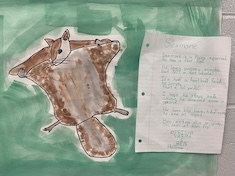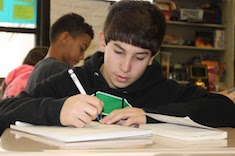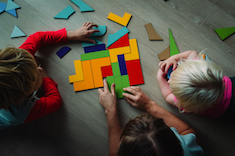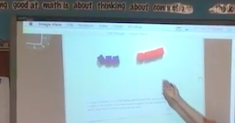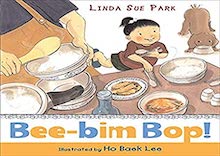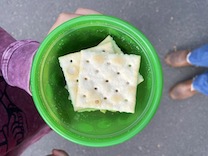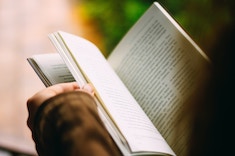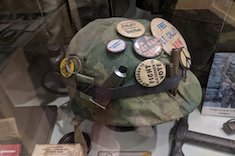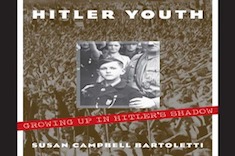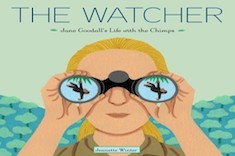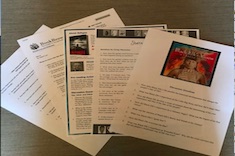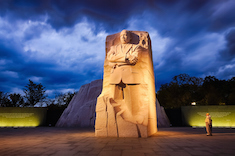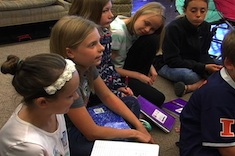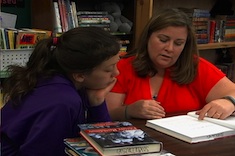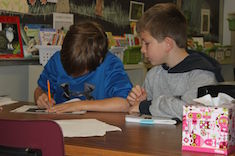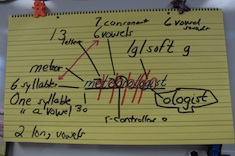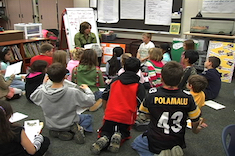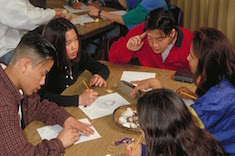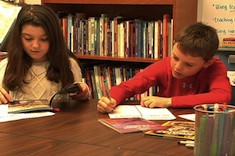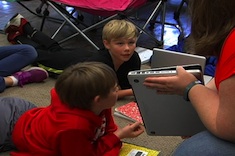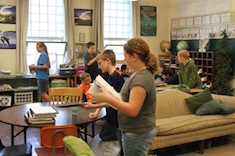Content Literacy
Reading and writing across the curriculum is sparking more interest than ever among teachers and school leaders. Here are the resources you need to build more writing into your math curriculum, more reading and talk into your science program, and especially, how to infuse more nonfiction texts into your teaching throughout the school day.
Latest Content
Writing to Learn
Leigh Anne Eck shares how her middle school moved away from essay writing in all content areas and prioritized three writing strategies: sentences, summaries, and quick-writes as low-stakes writing tasks.
Whole-School Animal Research
Gigi McAllister shares an annual school-wide research project she leads in the library. You’ll be inspired by the way a focus on research can bring joy and belonging to all students in all grades.
Now What? We Went on a Field Trip
Mandy Robek thoughtfully connects a field trip to multiple literacy experiences in her second-grade classroom. If you’re looking to leverage the field trip experience for reading and writing, you’ll love Mandy’s process.
Delving Deeper Through Inquiry-Based Learning
Jodie Bailey suggests using books, pictures, or examples to begin or increase inquiry-based learning in your classroom. Using an example of learning more about pi from her classroom, Jodie offers ways to help students deepen their learning in any content area.
Literacy Skills in All Content Areas
Julie Cox reminds us that each content area is full of opportunities for students to give shape to their ideas in all kinds of ways that don’t look like traditional essays but still help them develop their literacy skills.
Morning Message 5 — Meaning and Content Connections
In this installment of the morning message series, Ruth Metcalfe unlocks a wide range of opportunities to support learning in any content area.
Routines That Normalize Mistakes
We all know that mistakes are part of learning and that safe environments for risk-taking allow students to grow, but how do you take the sting out of making mistakes? David Pittman offers advice on ways to normalize mistakes in math.
Math Debates: A Powerful Sense-Making Routine
Jodie Bailey shares a powerful practice of math debates for students to explore a problem with discussion and evidence to discover the correct solution.
Best Wrong Answer
Mallory Messenger shares a “best wrong answer” routine to help normalize mistakes while students think deeply about the math involved and help themselves look out for common mistakes to avoid.
Picture Books with Recipes to Foster Math Engagement
Mandy Robek shares a delicious list of picture books with recipes to connect reading and math engagement.
Math Is Everywhere
Bitsy Parks shares an initial read aloud to encourage primary students to develop the ability to see math everywhere.
Read Alouds in Content Classes
Mark Levine explains the many ways read alouds can enhance and deepen learning for middle school students in content areas like social studies and science.
Building Interest Through Artifacts
Mark Levine has many students who haven’t traveled much more than 100 miles from home. He makes history come to life for them by bringing artifacts into his middle school classroom.
Magic Connections: Young Adult Literature in a Social Studies Class
Mark Levine shows how young adult literature is a potent tool to drive learning in his middle school social studies classroom.
Jane Goodall Inquiry: Introducing Expectations
Katherine Sokolowski introduces her students to routines and expectations early in the year with a unit on Jane Goodall, including many short read alouds.
A Fresh Take on Persuasive Writing
Louise Wrobleski uses video clips, children’s literature, and newspaper articles to teach middle school students new ways to craft persuasive writing.
Reading That Changes Us
Tara Barnett and Kate Mills slow down the “Article of the Week” nonfiction reading activity, making space for more reflection and thoughtful discussion.
Readers’ Guides: Helping Students Think About Informational Text
Suzy Kaback finds the task of creating readers’ guides helps students in the intermediate grades think about evidence in texts in more sophisticated ways.
Content and Context
Melanie Meehan considers content and context for students who struggle to master new skills because of a lack of background knowledge.
Group Meeting: Sharing Resources for Animal Study
Katherine Sokolowski helps her fifth-grade students expand their territory for their animal research projects by sharing information sources and peer connections.
My World Maps
Creating “world” maps is a great way to explore the territories beyond school that matter most to everyone in your classroom. Suzy Kaback explains how to create them with students early in the year as a way to get to know them as learners and community members.
Building a Next-Read Nonfiction Stack
Katherine Sokolowski helps fifth grader Jack build a next-read stack of nonfiction, highlighting a variety of text features and historical references.
Literacy and Global Competence
“China is going to kill us all!” This quote from a student causes Matt Renwick to stop and consider how schools can use literacy to promote global understanding.
Backward Chaining
How do you help students who are far behind their classmates in tackling writing projects, and have had years of learned helplessness in approaching complex tasks? Melanie Meehan takes on the challenge with a backward-chaining model.
Building Stronger Wordsmiths
Maria Caplin is integrating vocabulary work into content areas.
More Nonfiction Read Alouds
Franki Sibberson shares strategies for incorporating more nonfiction into read-aloud times throughout the day.
Reflecting on the L
Mark Levine wonders if his middle school students are spending enough time reflecting on the L in K-W-L, so he creates a form to help.
Exploring Text Features
Melanie Meehan works with a small group to talk through how nonfiction text features might enhance their informational writing.
Environment Small Group: Habitat
Katherine Sokolowski leads a small group of fifth graders who have chosen similar topics for their projects in an environmental unit.
The Ocean Research Project: From Launch to Celebration in 10 Days
Ten days from the launch of student research projects to a celebration with families? Katherine Sokolowski shares how a tight time frame that concludes with an evening event can bring energy and high student interest to the research process.
Browse Content By
Type
Category
- Assessment Tools
- Big Fresh Archives
- Booklists
- Choice Numeracy
- Classroom Design
- Common Core
- Community Building
- Conferring
- Content Literacy
- Digital Literacy
- English Language Learners
- Equity
- Family Relations
- Free Samples
- Guiding Groups
- Leadership
- Literacy Coaches
- Mentor Texts
- Minilessons
- New Teacher Mentors
- Podcasts
- Poetry
- Quote Collections
- Reading Strategies
- Self Care
- Struggling and Striving Learners
- Talking and Listening
- Teacher Study Groups
- Teaching Reading
- Teaching Writing
- Word Study and Vocabulary
Author
- Melissa Quimby
- Nawal Qarooni
- Gwen Blumberg
- Julie Cox
- The Lead Learners
- Hannah Tills
- Josie Stewart
- Ruth Metcalfe
- Mallory Messenger
- Becca Burk
- Jodie Bailey
- Vivian Chen
- Mary Brower
- Tiffany Abbott Fuller
- Stephanie Affinito
- Ruth Ayres
- Leigh Anne Eck
- Heather Fisher
- Shari Frost
- Julie Johnson
- Suzy Kaback
- Gigi McAllister
- Shirl McPhillips
- Melanie Meehan
- Cathy Mere
- Debbie Miller
- Tara Barnett and Kate Mills
- Tammy Mulligan
- Dana Murphy
- Bitsy Parks
- David Pittman
- Brenda Power
- Heather Rader
- Matt Renwick
- Mandy Robek
- Christy Rush-Levine
- Gretchen Schroeder
- Jen Schwanke
- Brian Sepe
- Katherine Sokolowski
- Stella Villalba
- Jennifer Vincent
Grade Level
Choice Literacy Membership
Articles
Get full access to all Choice Literacy article content
Videos
Get full access to all Choice Literacy video content
Courses
Access Choice Literacy course curriculum and training



